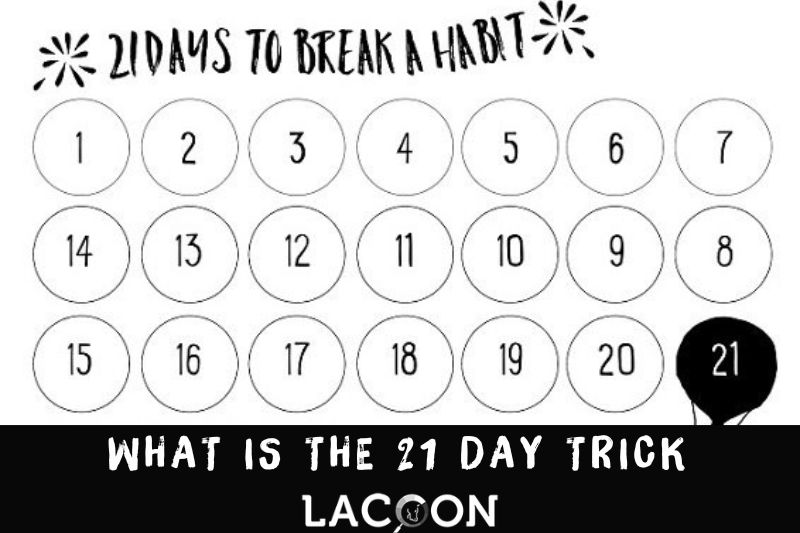Remote work is getting more common as technology advances and the world becomes more connected. A remote closer is a sales professional who closes deals with customers from a remote location.
Unlike traditional sales roles, a remote closer doesn’t need to meet customers face-to-face and can work from anywhere. They use technology to connect with customers all over the world.
In this article, Lacoon will discuss what is a remote closer, their job responsibilities, and the essential skills they need to be successful.
What Is A Remote Closer?

A remote closer is a sales professional who specializes in finalizing deals, often working remotely from a home office or another location outside the company’s main office.
They are responsible for establishing relationships with potential clients, conducting persuasive sales presentations, overcoming objections, and ultimately closing deals.
The remote aspect of the job means that closers can work with clients all over the world and are not constrained by geographical location.
What Are The Benefits Of Being A Remote Closer?

- Flexibility: Remote closers can work from anywhere with a stable internet connection. This gives them a chance to find a better balance between work and life.
- Increased productivity: Remote closers can work from anywhere with a steady internet link. This gives them a chance to find a better balance between their work and their personal lives.
- Cost savings: Remote closers save money on gas, work clothes, and food, and they may be able to deduct some of their home office costs from their taxes.
- Expanded client base: Remote closers can find more clients and chances because they can work with clients all over the world.
- Career growth: Remote closers can keep improving their skills and look for ways to move up in the business or the sales industry as a whole.
Distinction Between “Setters” and “Closers”
In sales, the roles of setters and closers are distinct but complementary. Setters, also known as lead generators or appointment setters, are responsible for identifying potential clients and setting up meetings with qualified prospects.
They lay the groundwork for the sales process by nurturing leads and initiating contact with potential clients.
Closers, on the other hand, focus on finalizing deals. They take over after the setters have scheduled appointments or conducted initial presentations.
Closers are sales professionals who have excellent negotiation skills. They can handle objections and build rapport with clients to convince them to commit to a purchase or a partnership.
What is the Difference Between a Salesperson and a Closer?
Salespeople handle the entire sales process, from prospecting to closing deals, and are involved in various tasks, including building relationships and presenting offerings. They need a broad range of skills to manage multiple stages of the sales cycle.
Closers, however, are specialized sales professionals focused on finalizing deals. They excel in persuasive negotiation and overcoming objections to secure client commitments. Their expertise lies in sealing the deal, and working in collaboration with salespeople to ensure a successful sales process.
In essence, salespeople manage multiple aspects of the sales process, while closers are experts in closing deals. Both roles are crucial for a successful sales team.
How Much Do Remote Closers Make?

The amount that remote closers earn depends on various factors such as their experience, industry, commission structure, and performance.
On average, remote closers can earn a base salary between $40,000 to $70,000 per year. They can also receive additional commissions and bonuses that may increase their total compensation to six figures.
Commissions are usually calculated as a percentage of the total sales revenue generated or as a flat fee per deal closed. Some companies also offer performance-based bonuses and incentives to reward top-performing closers.
How Do You Become a Remote Closer?

Step #1. Role Selection
Begin by identifying the industries or markets that interest you and the types of products or services you would like to sell.
Step #2. Calibrate
Gain sales experience by working in an entry-level sales position, such as a sales representative or an appointment setter. This will help you develop essential sales skills and a deeper understanding of the sales process.
Step #3. Source
Search for remote closer positions in your preferred industry by leveraging online job boards, networking events, and social media platforms like LinkedIn. Tailor your resume and cover letter to highlight your sales experience and remote work capabilities.
Step #4. Ramp
Once hired, invest time and effort into learning the company’s products or services, target audience, and sales techniques. Continuously refine your skills and stay up-to-date with industry trends and best practices to excel in your role.
What Type Of Personality Is Best Suited For A Career As A Remote Closer?

A successful remote closer typically possesses the following personality traits:
- Assertiveness: The ability to confidently express opinions and advocate for oneself is crucial for overcoming objections and closing deals.
- Empathy: Understanding the needs and concerns of potential clients is essential to building rapport and trust.
- Resilience: Rejection is a part of the sales process, and remote closers must be able to bounce back quickly from setbacks.
- Self-motivation: As remote workers, closers need to be disciplined and driven to achieve their goals without constant supervision.
- Adaptability: Remote closers must be able to adapt to new situations and technologies, adjusting their sales strategies as needed.
What Are the Challenges Of Being A Remote Closer?
- Isolation: Working remotely can lead to feelings of isolation and disconnection from the company’s culture and team dynamics.
- Time management: Without the structure of a traditional office environment, remote closers must develop effective time management habits to stay on track with their tasks and goals.
- Distractions: Remote closers need to create a dedicated workspace and minimize distractions to maintain focus and productivity.
- Maintaining work-life balance: Remote closers may struggle to establish boundaries between their professional and personal lives, which can lead to burnout if not managed effectively.
- Technical difficulties: Remote closers depend on reliable technology and internet connections to perform their duties. Technical issues can cause disruptions and delays in their work.
FAQs

What distinguishes a remote closer to other sales positions?
A remote closer typically conducts their job responsibilities from a location outside of the office, such as their home, and does not have face-to-face interactions with clients.
What is remote high ticket closing?
Remote high ticket closing is a form of inbound sales where a salesperson aims to persuade a prospect to purchase a high-value product or service, such as a course, mentorship program, or consulting service.
In the context of architecture, what does remote mean?
Being a remote architect involves designing architecture from one’s location, often from a home office, and tailoring designs to meet the specific needs and requirements of clients.
Why is the role of a closer important?
Closers are often highly valued relief pitchers in a baseball team’s bullpen. They must make quick, strategic decisions about pitch selection and placement to secure outs for their team.
Conclusion
As a remote closer, you’ll have a lot of freedom, save money, and have the chance to work with people all over the world. To be good at this job, you need to be able to communicate well, be persuasive, and be able to change to changing situations.
Aspiring remote closers can start a fulfilling and lucrative career by knowing the difference between setters and closers, honing the skills they need, and looking for industry opportunities.
But it’s important to be aware of the problems that come with working from home and come up with ways to deal with them.





